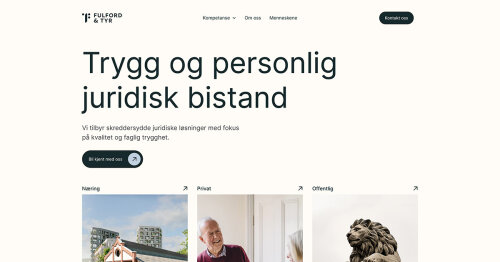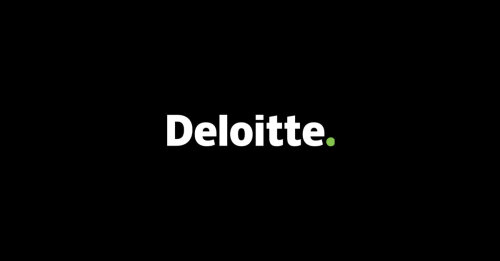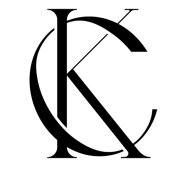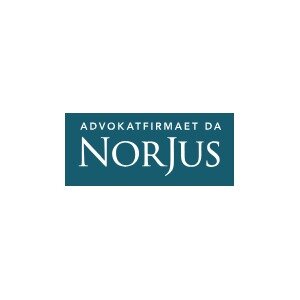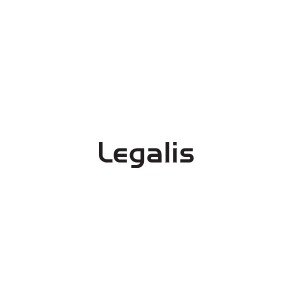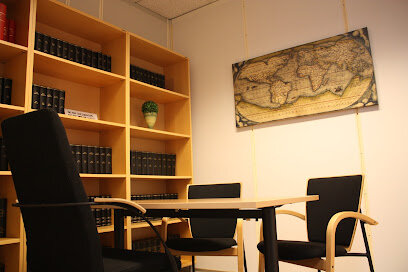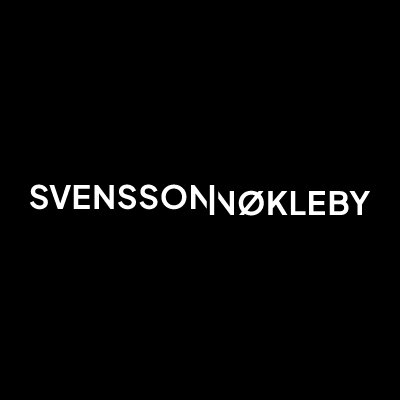Best Licensing Lawyers in Norway
Share your needs with us, get contacted by law firms.
Free. Takes 2 min.
Or refine your search by selecting a city:
List of the best lawyers in Norway
About Licensing Law in Norway
Licensing law in Norway involves various regulations providing legal frameworks for the granting of licenses. These licenses are required for numerous activities, ranging from commercial trade to intellectual property use. Typically, a license in Norway serves as a permission granted by an authorized body (often a governmental authority) for official conduct, operation, or usage of regulated goods, services, or property. The licensing process in Norway aims to protect public interest, ensure fair competition, and maintain public safety and order.
Why You May Need a Lawyer
Engaging a lawyer specializing in licensing law is beneficial in numerous scenarios. Common situations include:
- Starting a new business that requires specific permits or licenses.
- Dealing with intellectual property rights, such as licensing trademarks or patents.
- Navigating complex and specialized industry regulations, such as in pharmaceuticals or environmental fields.
- Advising on compliance and lawful operation within Norway's regulatory framework.
- Handling disputes or litigation concerning license grants or compliance violations.
- Assisting with the application process, including preparing necessary documentation and representation in front of licensing authorities.
Local Laws Overview
Norwegian licensing laws are comprehensive and can vary significantly between industries. Key aspects include:
- The Norwegian Patents Act, which governs the licensing of patents and incorporates European Union regulations.
- The Norwegian Working Environment Act, instrumental for licenses related to labor rights and company operations.
- The Norwegian Competition Act, which impacts licensing agreements concerning market competition.
- Specific industry regulations, such as those for health, environment, and sustainable development that necessitate particular licenses.
- Local municipal regulations that can affect the licensing process for businesses operating within localized jurisdictions.
Frequently Asked Questions
What is the general process for obtaining a license in Norway?
The process usually involves submitting an application to the relevant authority, fulfilling legal and financial requirements, and potentially undergoing inspections or proving compliance with standards.
How long does it take to get a license approved?
Approval times can vary widely based on the type of license and the complexity of the application, ranging from weeks to several months.
Are there license fees involved?
Yes, there are typically fees associated with applying for and renewing licenses, which can differ based on the type of license and regulatory requirements.
Can a license be transferred or sold?
In many cases, licenses are non-transferable. However, specific licenses may allow for transfer or assignment, generally subject to regulatory approval.
What happens if my application for a license is denied?
You may have the option to appeal the decision, often through internal review processes within the respective regulatory body, or through legal means.
Is it mandatory to hire a lawyer for licensing applications?
While not mandatory, hiring a lawyer can significantly ease the application process, ensuring compliance with all legal requirements and reducing the risk of application refusal.
What is the difference between a license and a permit in Norway?
A license typically refers to permission to engage in a specific activity or use propriety, whereas a permit often pertains to complying with safety standards or other regulatory requirements.
How often do licenses need to be renewed in Norway?
Renewal frequency varies by license type. Some licenses require annual renewal, while others might be less frequent.
Do different regions in Norway have different licensing requirements?
Yes, some regions or municipalities may impose additional requirements or have specific regulations affecting licensing.
What are common reasons for licensing enforcement actions?
Non-compliance with regulatory standards, illegal operations without a license, or breaching license terms are common reasons for enforcement actions.
Additional Resources
For those seeking further information or assistance, the following resources might be helpful:
- The Norwegian Industrial Property Office (Patentstyret) for intellectual property licenses.
- The Norwegian Competition Authority for fair competition licensing and related queries.
- Local municipal offices for region-specific licensing requirements and applications.
- Attorney firms specializing in Norwegian licensing law.
Next Steps
If you need legal assistance in licensing, consider the following steps:
- Identify the specific type of license relevant to your needs.
- Conduct research or consult preliminary resources to understand the regulatory requirements.
- Seek a consultation with a legal expert specializing in licensing law to guide your application process or resolve disputes.
- Gather necessary documentation and prepare for a guided application process to ensure compliance and increase chances of approval.
Lawzana helps you find the best lawyers and law firms in Norway through a curated and pre-screened list of qualified legal professionals. Our platform offers rankings and detailed profiles of attorneys and law firms, allowing you to compare based on practice areas, including Licensing, experience, and client feedback.
Each profile includes a description of the firm's areas of practice, client reviews, team members and partners, year of establishment, spoken languages, office locations, contact information, social media presence, and any published articles or resources. Most firms on our platform speak English and are experienced in both local and international legal matters.
Get a quote from top-rated law firms in Norway — quickly, securely, and without unnecessary hassle.
Disclaimer:
The information provided on this page is for general informational purposes only and does not constitute legal advice. While we strive to ensure the accuracy and relevance of the content, legal information may change over time, and interpretations of the law can vary. You should always consult with a qualified legal professional for advice specific to your situation.
We disclaim all liability for actions taken or not taken based on the content of this page. If you believe any information is incorrect or outdated, please contact us, and we will review and update it where appropriate.
Browse licensing law firms by city in Norway
Refine your search by selecting a city.



